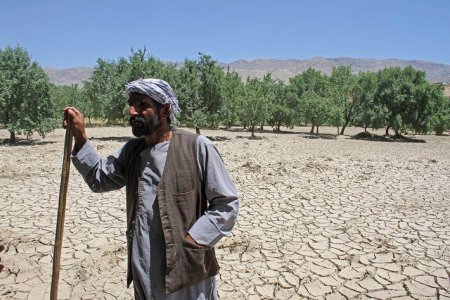
The Food and Agriculture Organization of the United Nations (FAO) has appealed for humanitarian assistance to be scaled up as Afghanistan continues to be hit hard by an ever-worsening drought that threatens the livelihoods of more than 7 million people who rely on agriculture or livestock.
Many of these people are already among the 14 million people – one in three Afghans – who are acutely food insecure and need urgent humanitarian assistance.
“Farmers and livestock owners must not be forgotten in today’s humanitarian crisis,” said FAO Director-General, QU Dongyu. “Urgent agricultural support now is key to counter the impact of the drought and a worsening situation in Afghanistan‘s vast rural areas in the weeks and months ahead.”
The combination of severe drought, COVID-19 related economic impacts and widespread displacement have hit Afghanistan’s rural communities hard, particularly its farmers and herders, who are the backbone of the country’s economy. Food production and agricultural livelihoods are under extreme pressure.
“If we fail to assist the people most affected by the acute drought, large numbers will be forced to abandon their farms and be displaced in certain areas,” the Director-General added. “This threatens to further deepen food insecurity and poses yet another threat to the stability of Afghanistan.”
Winter wheat season: urgent support is needed
FAO aims to assist 250 000 vulnerable farming families – some 1.5 million people – for the upcoming winter wheat season. Planting begins in late September and runs into October in many areas. However, current funding will only enable FAO to support 110 000 families. There is a funding shortfall of USD 18 million in support for FAO’s Drought Response Plan in Afghanistan.
Source: FAO







